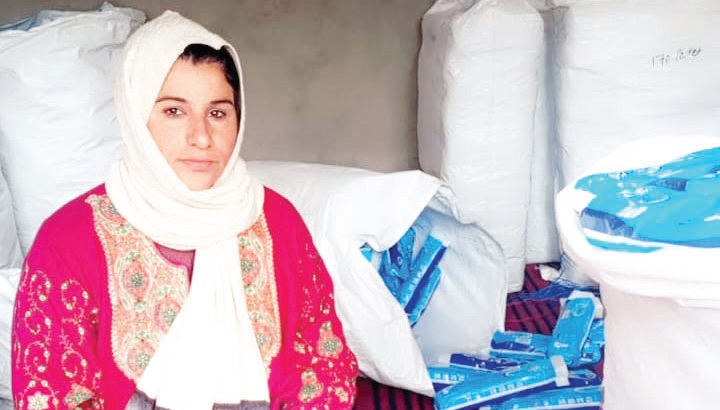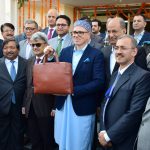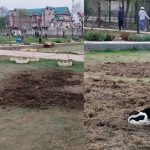Kulgam, Mar 07: Anjum Rashfi, a 32-year-old woman from Kulgam, is breaking taboos surrounding menstrual hygiene by taking on the challenge of manufacturing sanitary pads. Through her initiative, she aims to help women in rural Kulgam achieve better menstrual hygiene.
Rashfi is receiving support through the Rural Livelihood Mission (Umeed). She established her own sanitary pad manufacturing unit in Sangas village, approximately two kilometers from Kulgam’s main town.
Speaking to Rising Kashmir, Rashfi said that she was part of a Self-Help Group (SHG) under the National Rural Livelihood Mission (NRLM) and has been earning her living through the same scheme.
“They provided us support, including assistance from the BPM and Cluster, which enabled us to start this initiative. Our goal is to provide rural women with low-cost, hygienic sanitary pads in Kulgam,” she said.
She added that a few more people are working with her in this unit, and they plan to have a team dedicated to marketing the product so that it reaches more rural women. She said that they are currently producing 300 pads a day and are planning to increase production and expand their base in Kulgam and other areas.
She said that she first learned about such an initiative being run by someone in Kashmir. She traveled there, met them, learned the process, and then returned to Kulgam to start her own unit. Rashfi, who has completed her 12th grade, is now determined to make a difference in menstrual hygiene awareness and accessibility in rural areas.
“As a woman, if I can start a unit and employ a few others, then why can’t unemployed individuals take similar initiatives? Instead of sitting idle at home, educated young men and women should come forward, start their own ventures, and contribute to the welfare of society,” Rashfi added.
Muzaffar Ahmad Malik, Rashfi’s former teacher, expressed his happiness at seeing his student take up such a meaningful initiative.
“Rashfi has set a precedent for many young boys and girls, inspiring them to establish their own startups, earn a livelihood, and help others find employment,” Malik said. “We all need to support such initiatives.”










